The ribbon-cutting ceremony for the newest section of the French Broad River Greenway was held Friday, April 21, at the foot of the New Belgium brewery as part of the city of Asheville’s Earth Week Celebration.
Representatives from the many public and private partnerships that had a role in the development of this section, called West Greenway Stage 1, were on hand to discuss the improvements that are now in place.
Steph Monson Dahl, the city’s riverfront office director, and Garrett Artz, RiverLink’s new executive director, answered questions and greeted guests at the trailhead to the greenway at the intersection of Craven Street and Emma Road. Displays and signs designed by Asheville Design Center surround the open space telling stories and highlighting the history of the river valley.
“Right now, the focus is to take the greenway across Craven Street Bridge,” Dahl said. “Over the next three years, we’ll be filling in all the pieces — from the Wilma Dykeman plan and the RADTIP plans — on the eastern bank of the river, which will mimic what’s happening on this side of the river, so people can be safe walking or biking and it will be more convenient to get around in the [River Arts District]. The county is partnering with the city moving forward to extend the greenway all the way to Woodfin, which is really exciting.” Dahl said plans include a sidewalk connection up Emma Road and connecting this new stretch of the greenway to Richmond Hill.
Justin Mitchell, whose boots were still wet at the opening ceremony, had just spent three hours before the ribbon-cutting volunteering with co-workers for RiverLink and doing river cleanup from canoes. Mitchell, a Realtor with Mosaic Realty, explained how he got the day off. His co-workers were participating in a city program that encourages local businesses and their employees to take part in certain environmental events.
The cleanup crew managed to haul eight bags of trash and a large tire from the river. Mitchell said it was more than he had expected to find. “I’m really glad I participated. It just goes to show if everybody cruises down the river once [a] season and picks up trash while they’re here, this place would be cleaner. It feels good to do your part and it’s a perfect spring day for my first time in the river for the year.”
Staff from the city’s Office of Sustainability were on hand. Amber Weaver, the city’s chief sustainability officer, and Hayley Mahoney, sustainability technician, had set up a station along the path and were handing out seed packets of bee balm and milkweed and talking about three new programs their office is launching this week.
- The Urban Agriculture program will lease city-owned property, at market rates, to residents wanting to grow food on a larger scale but not having the property on which to do so.
- The Community Gardens program will give neighborhoods and organizations a chance to start a community garden on city-owned property with a no-cost lease as long as the community maintains the property.
- The Adopt-A-Spot program will function much like the Adopt-A-Street program, with signs indicating the names of “spot” adopters. The city has partnered with Asheville GreenWorks to provide this program, which promotes stewardship of publicly owned places. The adopter must maintain an edible or pollinator garden at the location. “We’re really proud to have [this program] launching and see our food-policy action plan looking like a living document. It’s happening,” Weaver said. “We’re going to start small, but we’re trying to start smart. One of the main things we heard from the public is that they want to have more edible landscaping available in their public parks. And we needed more of a controlled way of doing it, in the sense of not plant[ing] trees in the median of a road so people have to cross a busy street to reach a fruit tree. We think the Adopt-A-Spot program will be a good solution.”
Susanne Hackett, communications specialist with New Belgium Brewing, described the event as the culmination of partnerships begun five years ago, when the brewery was considering adding a facility in Asheville. “There have been so many people involved in touching this greenway and making it happen that it’s exciting to think about what can happen in the future. It’s been great to find out some of the history of the site and the connecting neighborhoods and [then] incorporating that into the story of our development here. This greenway is an amazing key [part] of being able to connect to the neighborhoods by foot and by bike.”
Just as the festivities were gearing up and the VIPs were about to present their big checks, rain started falling. The ceremony was moved quickly from the greenway to the brewery. Once reassembled under cover, Mayor Esther Mannheimer welcomed the damp crowd. Cathy Ball, assistant city manager, thanked the community partners and city personnel who had worked to complete this stage of the greenway. Mannheimer invited representatives from the partnerships to take part in the ribbon-cutting. Robert Foster, chair of the Buncombe County Tourism and Development Authority’s Tourism Product Development Fund Committee, presented the city with a check for $3.5 million, reflecting its 2014 and 2015 grants for Riverfront Destination Development. He noted that the TDA has contributed $17 million to date to city projects. Dan Gerlach, president of the Golden LEAF Foundation, presented the city with a check for $300,000 from the foundation, which is responsible for distributing North Carolina cigarette manufacturers tobacco-settlement money. The settlement funds are to be used to help transform the economy of rural, tobacco-dependent and economically distressed areas.
With the ceremony over, people dashed through the rain to New Belgium’s Liquid Center, where refreshments were being served. Bill Eaker, a former member of the French Broad River Foundation, which began in the 1980s and was a precursor to groups like RiverLink, remembered the first French Broad River Fest, held to raise money for river cleanup. “I can remember back in ‘85, looking across the river from that festival to this [greenway] site. You could have never imagined this kind of improvement,” Eaker said.
All photos by Cindy Kunst.



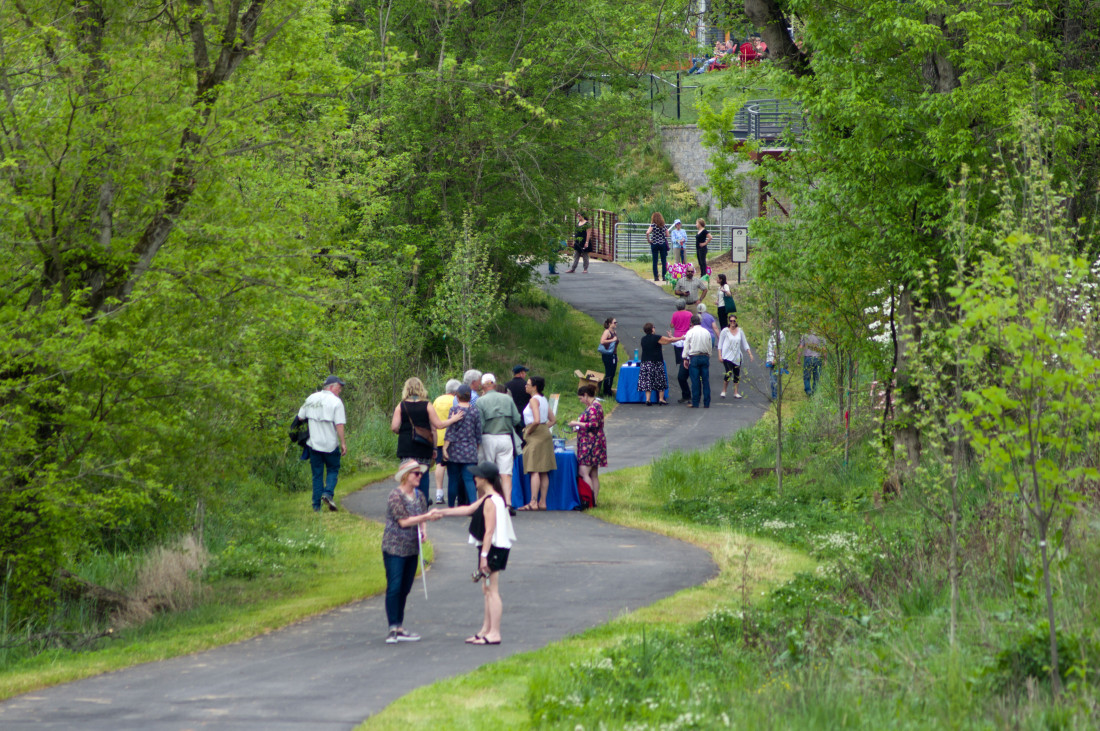
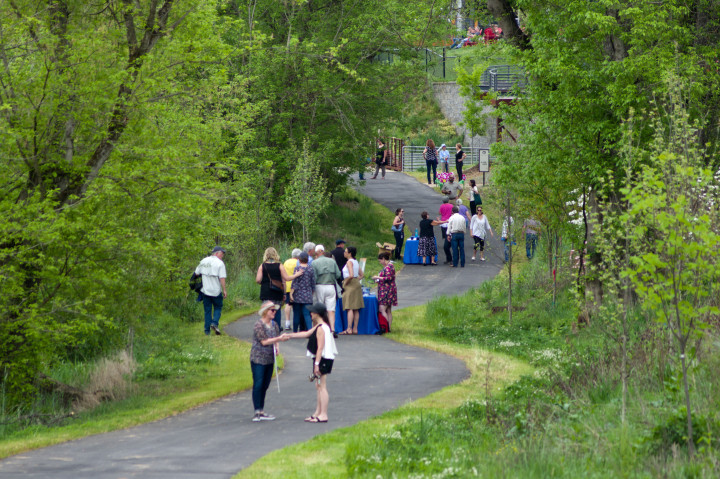

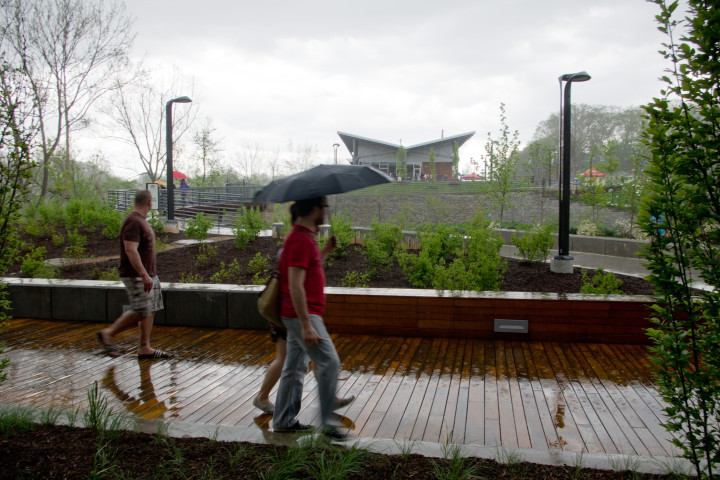

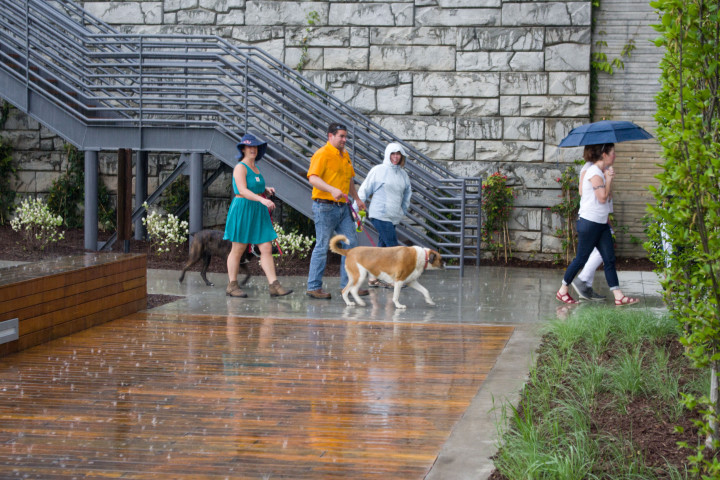
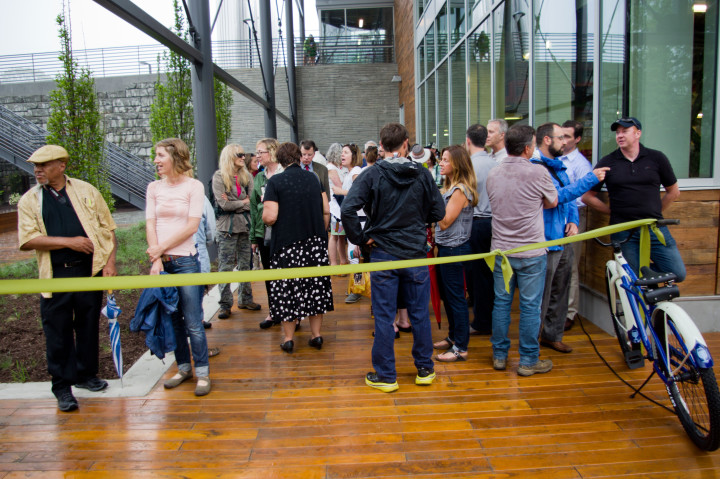

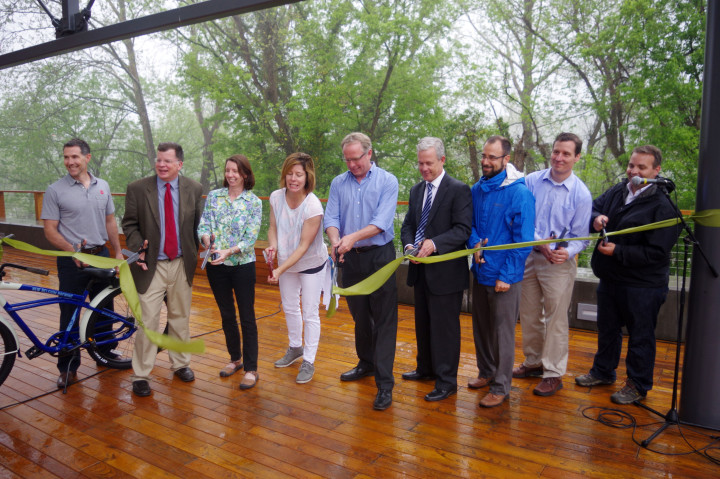
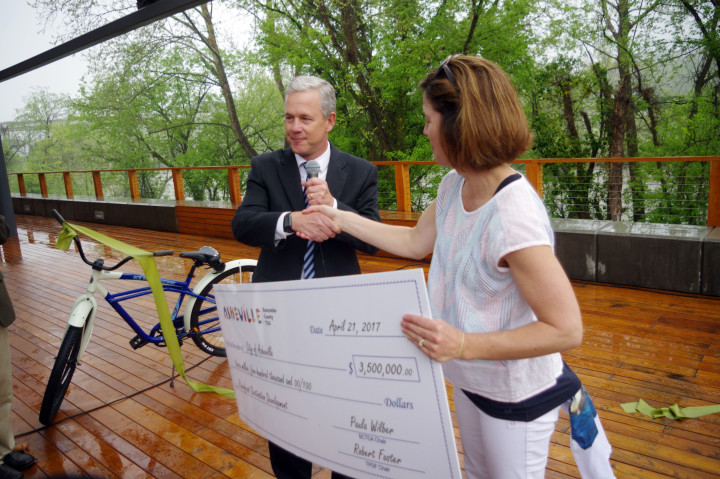

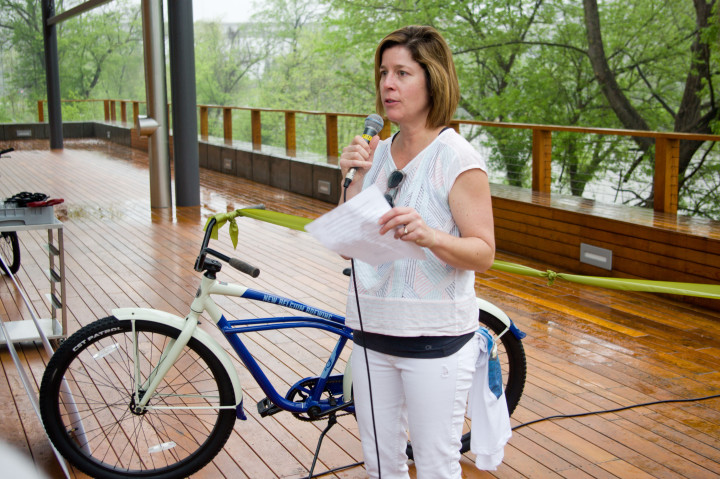
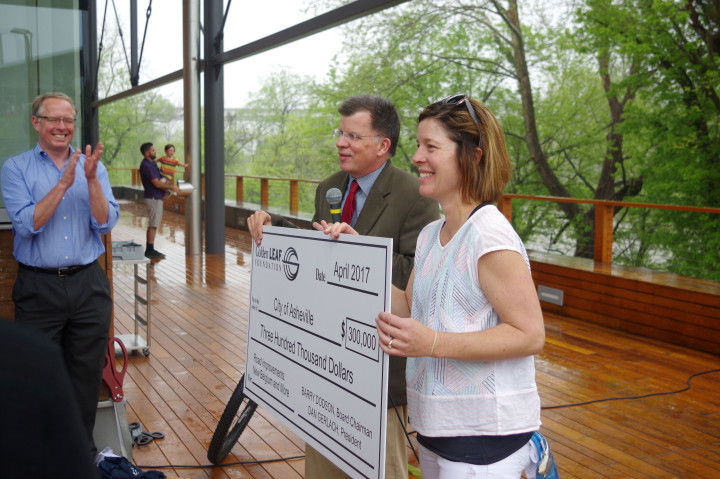
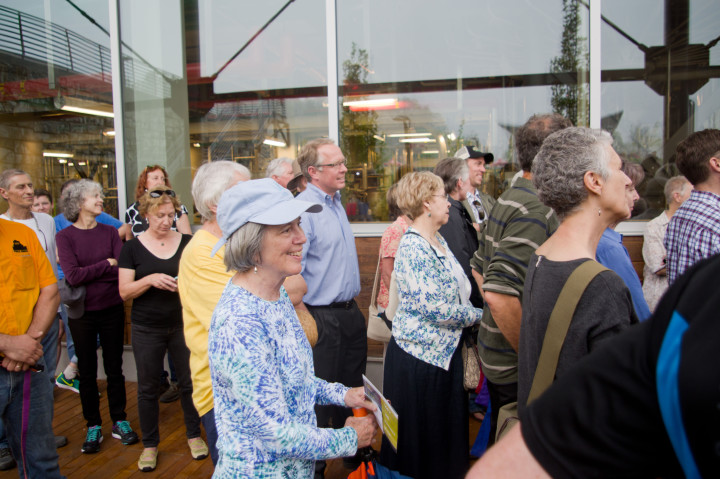

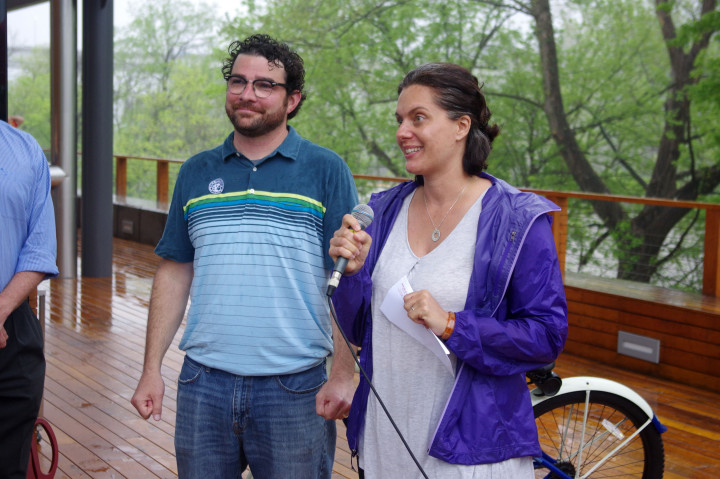
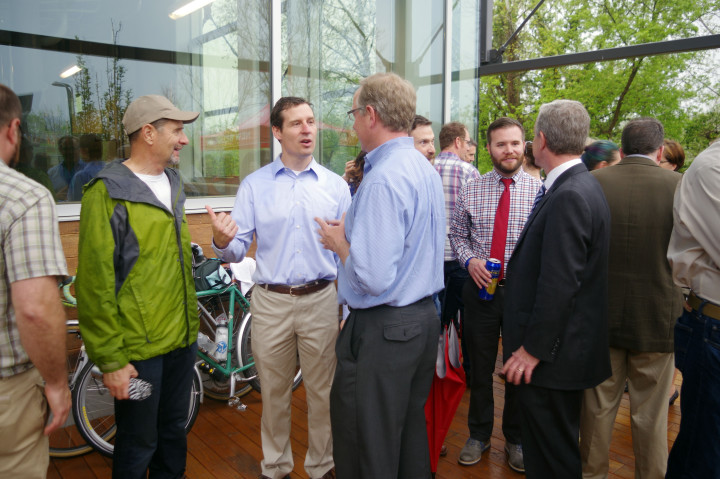


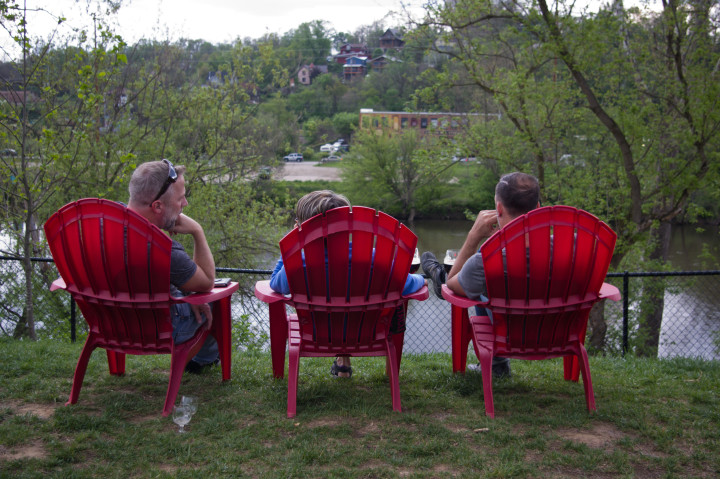
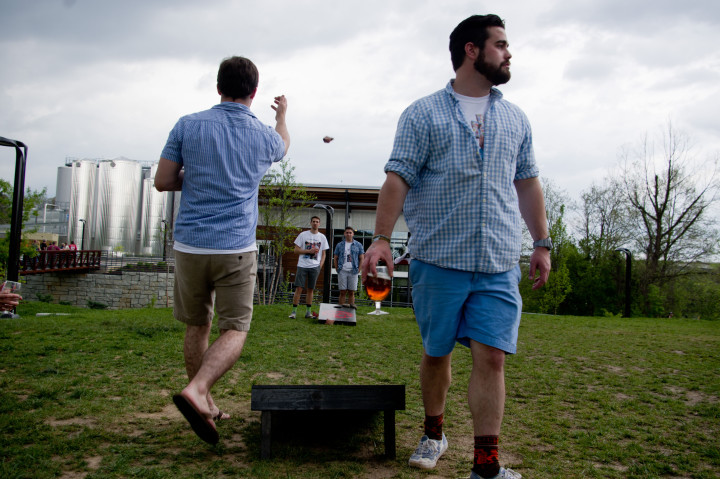
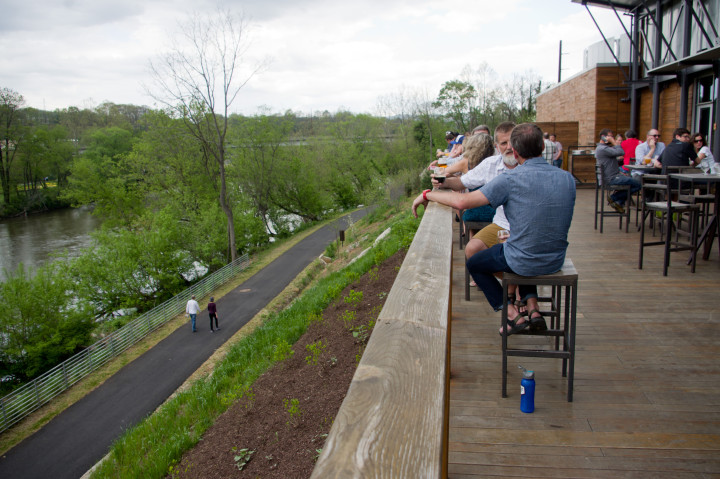
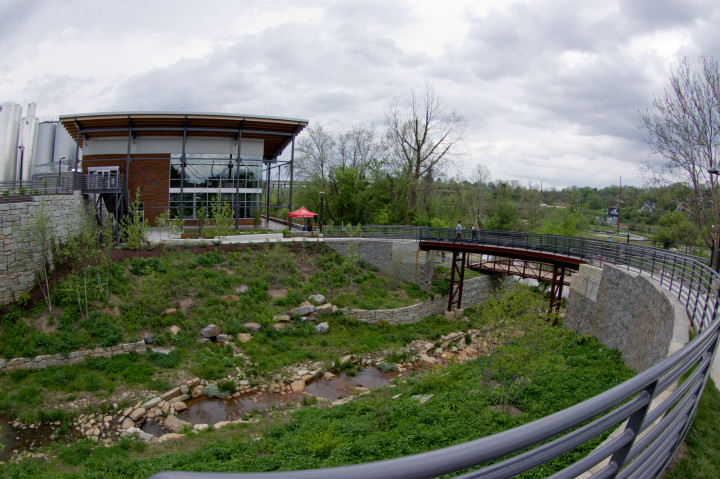
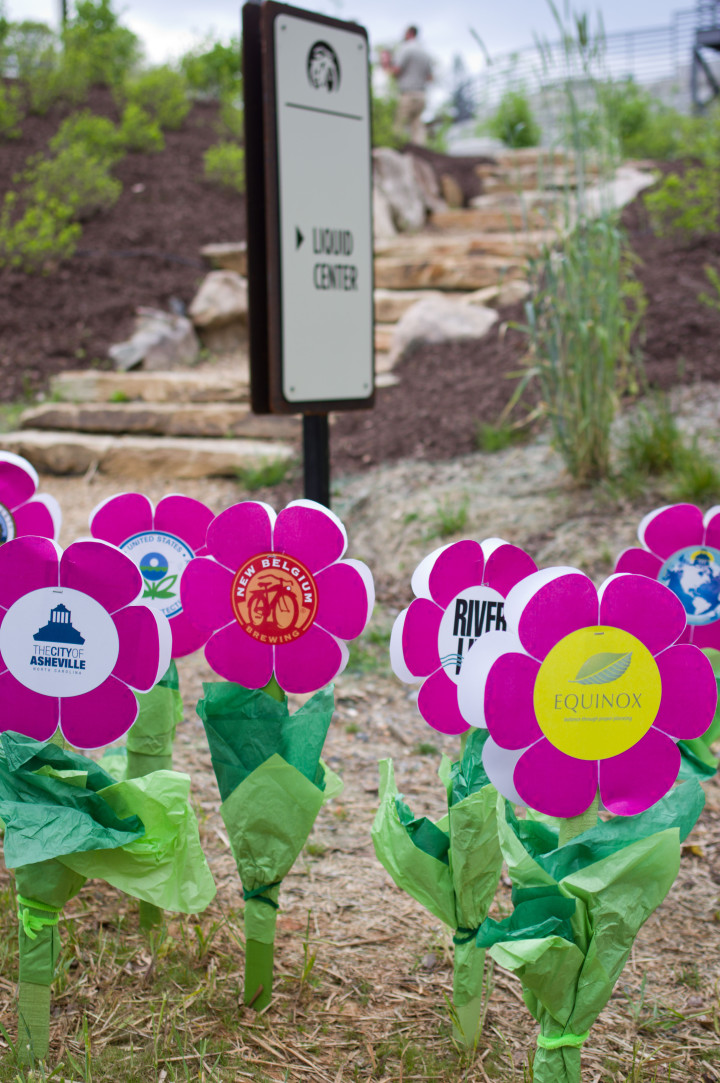
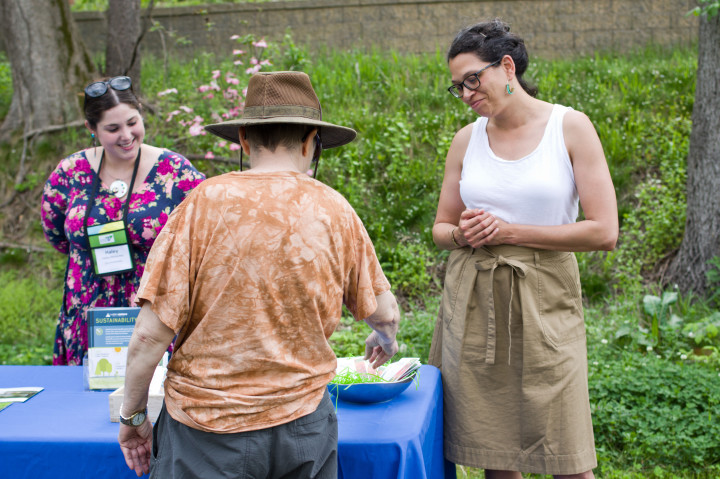
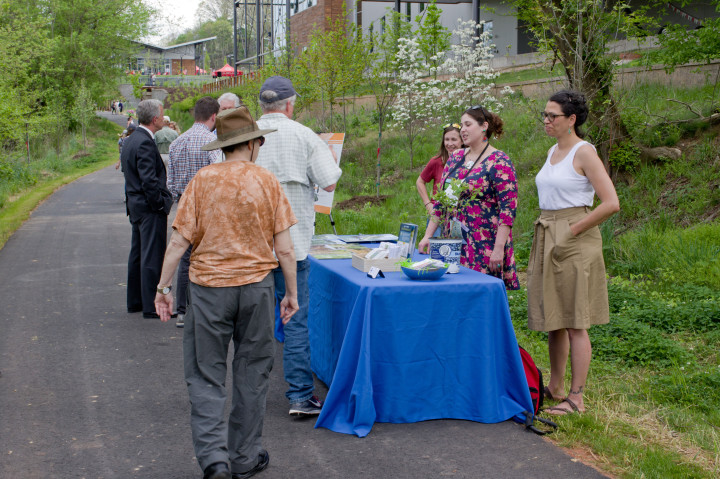


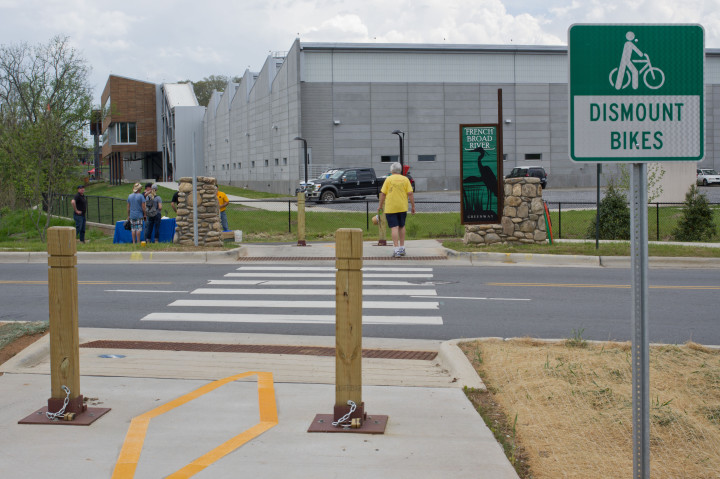

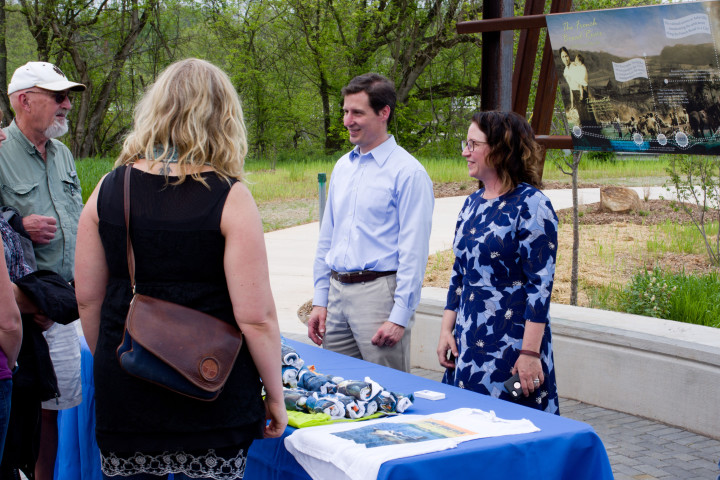
LOL, hand those big checks over lulz. Meanwhile others struggle and you guys are totally out of touch.
So true. Greenways benefit only the progressive elitists who can afford tennis shoes and flip-flops.
Interesting comment. How does the green way only benefit the elitists?? Does it cost more for someone making less to use. I bought my bike from Goodwill for $12 and use green ways all over the country, I run on them and enjoy the nature. Guess I am confused on how it only benefits the elite.
You’ve got the words, Brian. Now work on the tune. (Apologies to Mr. Twain.)
It’s not community improvement instead of greenways; we all need both.
The article is very short on details about the Greenway itself. How long is it? If it starts at New Belgian, where does it end?
The greenway begins at the western end of Craven Street Bridge near it’s intersection with Emma road. It is .6 mi long and runs along the rivers edge behind New Belgium Brewery until it ends at the western end of the River Link Bridge. It will eventually be extended to connect to the French Broad River Park (the path that heads north beyond the dog park) and the rest of the Wilma Dykeman river-way plan. http://riverlink.org/wilma-dykeman-riverway-plan/